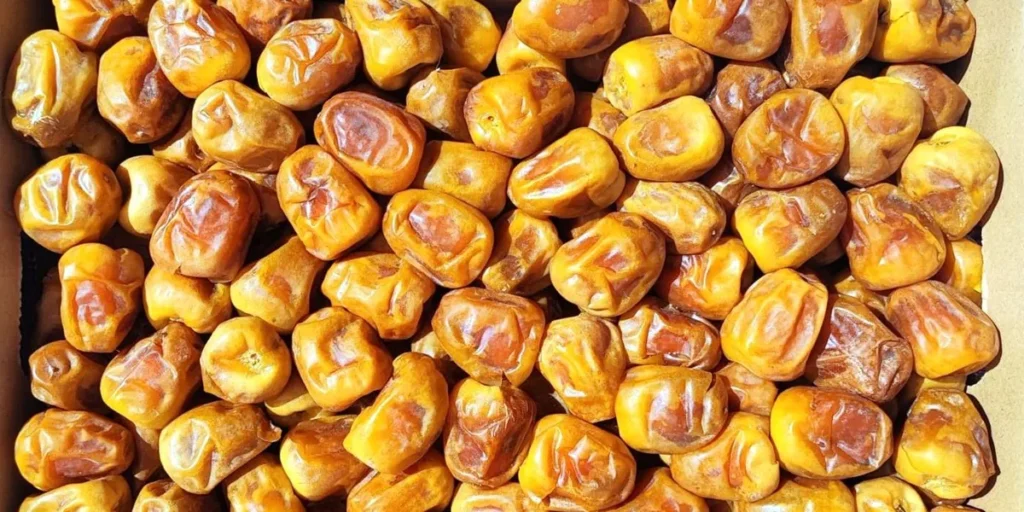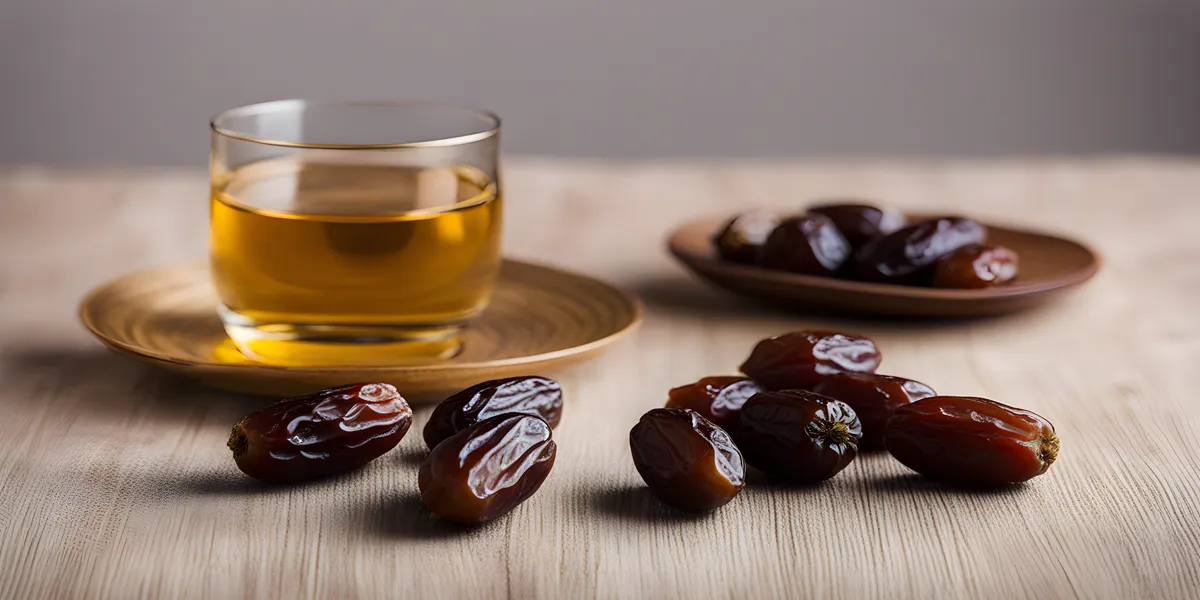Imagine a fruit so ancient it was cultivated thousands of years ago, yet so modern in its benefits that scientists now rank it among the world’s top superfoods in 2025. That fruit is the organic Middle Eastern date. Rich in natural energy, packed with fiber, and brimming with antioxidants, dates are no longer just a traditional staple — they are becoming a global health essential. With varieties like Medjool, Deglet Noor, and Khudry, each offering unique textures and nutrient profiles, dates deliver far more than sweetness. They support digestion, enhance heart health, protect cells against oxidative stress, and even show promising effects on brain function. As global awareness of functional foods rises, organic Middle Eastern dates are stepping into the spotlight as one of the top five superfoods worldwide. Keep reading to explore their varieties, scientifically backed benefits, and why they’re capturing so much attention today.
What Defines a “Superfood” — And Why Organic Middle Eastern Dates Qualify
The term “superfood” is not just a marketing label; it refers to foods that deliver exceptional nutrient density, protective bioactive compounds, and measurable health benefits that go beyond basic nutrition. Superfoods are often plant-based and provide antioxidants, essential minerals, and compounds that support long-term wellness. Organic Middle Eastern dates fit this definition remarkably well. Unlike highly processed snacks, dates are a whole, natural food that has been consumed for thousands of years and continues to demonstrate modern relevance.
One of the key reasons dates qualify as a superfood is their balance of quick energy and slow-digesting fiber. This combination helps sustain vitality while preventing energy crashes. Their antioxidant content, including polyphenols and flavonoids, combats oxidative stress, which plays a role in chronic conditions such as heart disease and neurodegenerative disorders. Minerals like potassium, magnesium, and iron further elevate their nutritional profile.
The fact that these dates are cultivated organically strengthens their superfood status. Organic farming preserves soil health and reduces exposure to harmful chemicals, meaning the fruit retains more of its natural compounds without pesticide residues. This makes organic dates safer and potentially richer in phytonutrients. Moreover, the Middle Eastern climate — with its intense sunlight and dry heat — allows dates to develop unique sweetness and concentration of nutrients that are rarely matched elsewhere.
When consumers and researchers look at the growing list of functional foods in 2025, dates are no longer considered merely a cultural staple. They are recognized as global health assets. It is no surprise that Iranian Dates are now being discussed alongside berries, chia seeds, and green tea as part of the world’s top five superfoods. Their timeless appeal and scientifically proven benefits ensure that they stand out in the crowded superfood market.
Nutritional Profile: What Dates Give You That Few Foods Do
Dates are remarkable because they pack a spectrum of nutrients in a small serving, offering both immediate energy and long-term health benefits. Their carbohydrate content, mainly natural sugars like glucose, fructose, and sucrose, provides quick energy for both the body and brain. Yet, unlike refined sugar, dates come bundled with dietary fiber, which slows digestion, prevents blood sugar spikes, and enhances satiety. This makes them an ideal snack for sustained energy release throughout the day.
Equally impressive is their mineral composition. Dates are naturally high in potassium, a nutrient essential for heart health and muscle function, and magnesium, which supports over 300 biochemical reactions in the body. Iron content helps prevent anemia, while copper and manganese contribute to healthy metabolism and bone strength. This nutrient density is rarely matched in a fruit consumed so easily in its whole form.
Beyond macronutrients and minerals, dates are abundant in antioxidants. These include phenolic acids, flavonoids, and carotenoids, all of which play roles in protecting cells against oxidative damage. Such compounds have been linked with lower risks of chronic diseases, including cardiovascular conditions and certain cancers. The high antioxidant load positions dates as an excellent natural defense against inflammation and aging-related processes.
What makes them even more unique is the variety. Across the Middle East, particularly in Iran, there are dozens of distinct cultivars, each with its own nutritional subtleties. Some are softer and sweeter, while others are firmer with higher fiber content. These differences mean that Iranian date varieties provide consumers with options tailored to their health goals and taste preferences. Few other fruits can match this blend of diversity, accessibility, and nutrient richness, making dates one of the most valuable whole foods available today.
Scientific Evidence: Health Benefits Backed by Recent Studies
The growing body of research on dates underscores why they are gaining superfood recognition worldwide. Clinical and observational studies have consistently highlighted the diverse Health benefits of dates, showing that their bioactive compounds contribute to wellness across multiple systems of the body.
One of the strongest areas of evidence relates to cardiovascular health. The soluble fiber in dates helps reduce LDL cholesterol levels, while potassium and magnesium regulate blood pressure and support proper heart rhythm. Studies show that individuals who incorporate dates regularly into their diet may experience improved vascular function and reduced risk markers for heart disease.
Digestive health is another area where dates shine. Their high fiber content promotes healthy bowel movements, while their natural prebiotic compounds encourage the growth of beneficial gut bacteria. This supports microbiome balance, which is increasingly linked to immunity, weight management, and mental health.
Dates also appear to influence blood sugar control. Despite their natural sweetness, they have a moderate glycemic index when eaten in proper portions. Their fiber, combined with polyphenols, slows glucose absorption and helps regulate post-meal blood sugar levels. This makes them a better option than refined sugar for those managing energy and metabolic health.
Emerging research has revealed neuroprotective benefits as well. The antioxidants in dates reduce inflammatory markers in the brain, which may lower the risk of neurodegenerative diseases like Alzheimer’s. Some studies even suggest that date consumption can improve memory and learning in experimental models.
Finally, researchers are exploring potential anti-cancer properties due to dates’ polyphenolic content, as well as their role in strengthening immunity. Altogether, the health benefits of dates are no longer anecdotal; they are supported by rigorous modern science. This positions dates as not only a cultural food but also a cornerstone of preventive nutrition in 2025.

Why “Organic” Makes a Big Difference—Beyond Just Labeling
The difference between conventional and organic farming is far more than a label on packaging. Organic cultivation impacts the nutrient quality, environmental footprint, and long-term health outcomes associated with food. When it comes to dates, choosing organic means choosing a product grown without synthetic pesticides, herbicides, or chemical fertilizers. This ensures a cleaner fruit that retains more of its natural antioxidants and beneficial compounds.
Research shows that organic farming methods promote healthier soil microbiomes, which in turn enhance the nutrient absorption capacity of plants. This translates into higher levels of minerals and phytochemicals in the harvested fruit. In the case of dates, the result is not only better nutritional density but also more robust flavor and texture. Consumers gain confidence knowing that their food is both nutrient-rich and environmentally responsible.
The environmental impact is also critical. Organic date cultivation supports biodiversity, conserves water resources, and minimizes chemical runoff that can pollute ecosystems. In arid regions of the Middle East where water is scarce, sustainable farming practices are particularly valuable. By preserving natural soil fertility and reducing dependence on synthetic inputs, organic farming safeguards date production for future generations.
From a health standpoint, the absence of chemical residues means that consumers reduce their exposure to toxins that can accumulate over time. This makes organic dates a safer option, especially for families and individuals seeking to minimize their intake of contaminants.
It is also worth considering cultural and regional context. Many Middle Eastern farms have long adhered to traditional, low-chemical practices that naturally align with organic principles. Comparing Iranian dates vs Medjool dates highlights how different cultivation techniques and climates affect not only taste but also nutritional outcomes. Organic certification strengthens consumer trust in both varieties, reinforcing the idea that “organic” is more than marketing — it is a measurable difference in quality and health.
What Does “Middle Eastern Dates” Add to This? Unique Varieties & Terroir Effects
Middle Eastern dates are not a single, uniform product but rather a spectrum of unique varieties shaped by climate, soil, and centuries of cultivation practices. The concept of terroir, often applied to wine and olive oil, is equally relevant to dates. The intense desert sun, minimal rainfall, and mineral-rich soils of the Middle East create ideal conditions for dates to ripen with dense natural sugars and concentrated nutrients.
Among the most famous are Medjool, prized for their large size and caramel-like sweetness, and Deglet Noor, known for their semi-dry texture and balanced flavor. Iranian varieties such as Mazafati, Zahedi, and Piarom stand out for their richness, fiber content, and distinctive taste profiles. Each type delivers subtle differences in antioxidant concentration, fiber structure, and micronutrient levels. This diversity allows consumers to choose dates that fit specific dietary preferences, whether they seek energy-dense soft dates or firmer, fiber-rich options.
What sets Middle Eastern dates apart is also their cultural and agricultural heritage. Traditional drying methods, often sun-based, preserve the fruit naturally without heavy industrial processing. This not only maintains nutrient density but also ensures authenticity of flavor. The long history of cultivation in countries like Iran, Saudi Arabia, and the UAE has refined practices that balance sustainability with quality, creating fruits that stand out on the global stage.
From a scientific perspective, regional differences in phenolic compounds and mineral content have been documented, showing how terroir impacts nutrition. This makes Middle Eastern dates not just a snack but a study in how geography shapes food quality. In the era of global superfoods, these dates embody both tradition and innovation, offering consumers a nutrient-packed fruit with a story rooted in culture, climate, and science.
Scientific Challenges and Limits: What to Watch Out For
While organic Middle Eastern dates are celebrated as superfoods, it is important to recognize their challenges and limitations. The most obvious is their high natural sugar content. Although dates have a moderate glycemic index, overconsumption can still lead to spikes in blood glucose and excess calorie intake, particularly for individuals managing diabetes or weight. Portion control is essential to maximize benefits without negative effects.
Another challenge lies in variability. Different cultivars, harvest times, and growing conditions significantly influence nutritional content. Not all dates provide the same levels of fiber, antioxidants, or minerals, making it difficult for researchers to generalize findings. Processing also affects quality: sun-dried dates may retain more antioxidants, while industrial drying or added sweeteners can diminish nutritional value.
Storage is another limitation. Dates are susceptible to microbial contamination and moisture-related spoilage if not handled properly. This makes post-harvest management crucial for preserving both safety and nutrient density.
Finally, although research on dates has expanded, many studies remain small or observational. More randomized controlled trials are needed to confirm benefits on cardiovascular health, cognitive function, and metabolic regulation. Until then, dates should be considered part of a balanced diet rather than a cure-all solution.
How to Incorporate Organic Middle Eastern Dates Into Diets Smartly in 2025
In 2025, consumers are looking for smarter ways to integrate nutrient-dense foods into daily routines, and organic Middle Eastern dates offer versatile options. The key is moderation and pairing. Eating two to three dates as a mid-morning snack provides quick energy, while combining them with nuts or yogurt balances the sugar content with protein and healthy fats, preventing blood sugar spikes.
Dates can also replace refined sugar in recipes. Date paste or date syrup works well in smoothies, baked goods, and energy bars, offering sweetness with added fiber and antioxidants. Athletes can use dates before or after workouts for natural energy replenishment and electrolyte support from potassium.
For digestive health, including dates alongside high-fiber grains enhances prebiotic effects, supporting gut microbiome diversity. In plant-based diets, they serve as a nutrient-rich binder in vegan desserts and snack balls.
It’s also important to consider timing. Consuming dates earlier in the day supports energy needs, while smaller portions in the evening prevent excess calorie intake. By choosing organic, consumers avoid chemical residues and maximize nutritional integrity. In short, incorporating dates smartly means focusing on balance, creativity, and mindful eating to fully unlock their superfood potential.
Market & Global Trends: Why Dates Are Gaining Superfood Status Now
The global recognition of organic Middle Eastern dates as a top superfood in 2025 is driven by several converging trends. First, consumer demand for natural sweeteners is rising as people shift away from refined sugar. Dates, with their natural sweetness and added nutritional value, perfectly fit this need. The growth of plant-based diets further accelerates their popularity, as dates serve as both an energy source and a clean-label ingredient for vegan products.
Scientific validation also plays a role. Increasing numbers of studies highlight their cardiovascular, digestive, and neuroprotective benefits, reinforcing their credibility as a functional food. Health-conscious consumers now view dates as more than a traditional snack — they are part of preventive nutrition strategies.
On the supply side, Middle Eastern producers are expanding organic certification and improving global distribution, making high-quality dates accessible worldwide. Food manufacturers are also innovating with date-based sweeteners, protein bars, and functional beverages, integrating dates into mainstream wellness markets.
Cultural heritage adds to the appeal. Dates symbolize tradition and authenticity, which resonate strongly with consumers seeking foods that tell a story. Altogether, these factors combine to elevate dates into the global spotlight as one of the most sought-after superfoods today.
Future Directions: Research & Innovations to Watch in the Next 5 Years
The future of organic Middle Eastern dates lies at the intersection of science, technology, and sustainability. Researchers are exploring genomic breeding to identify cultivars with enhanced antioxidant levels, higher fiber content, and greater drought resistance — crucial for regions facing climate change. Such innovations will ensure consistent nutritional quality and stable supply.
On the nutritional science front, bioavailability is a key focus. While dates are rich in phenolic compounds, understanding how the body absorbs and utilizes them will guide better dietary recommendations. Clinical trials over the next five years are expected to provide stronger evidence for roles in cardiovascular protection, gut health, and neurodegeneration prevention.
Sustainability research is another priority. Studies on carbon footprint reduction, soil regeneration, and water-efficient cultivation methods will strengthen the case for dates as an environmentally responsible superfood. Organic farming techniques, already prevalent in many Middle Eastern regions, will likely expand and become a global standard.
Innovation in food technology will also shape the market. Expect to see fortified date-based products, functional beverages infused with date extracts, and advanced preservation techniques to retain nutrients during storage. These developments will position dates not only as a traditional fruit but as a scientifically optimized superfood of the future.
Final Heading: Organic Middle Eastern Dates: A Timeless Fruit Shaping the Future of Global Superfoods
Organic Middle Eastern dates are more than a natural sweet treat — they are a nutrient powerhouse backed by both tradition and modern science. Their diverse varieties bring not only delicious flavors but also a broad spectrum of health benefits, from supporting cardiovascular wellness to aiding digestion and boosting cognitive performance. What makes them truly stand out is their alignment with today’s demand for clean, functional, and sustainable foods. As one of the top five superfoods in 2025, dates prove that sometimes the most powerful nutrition comes from the simplest, most natural sources. Follow this journey further, and discover why this timeless fruit continues to redefine what it means to eat for health and longevity.




